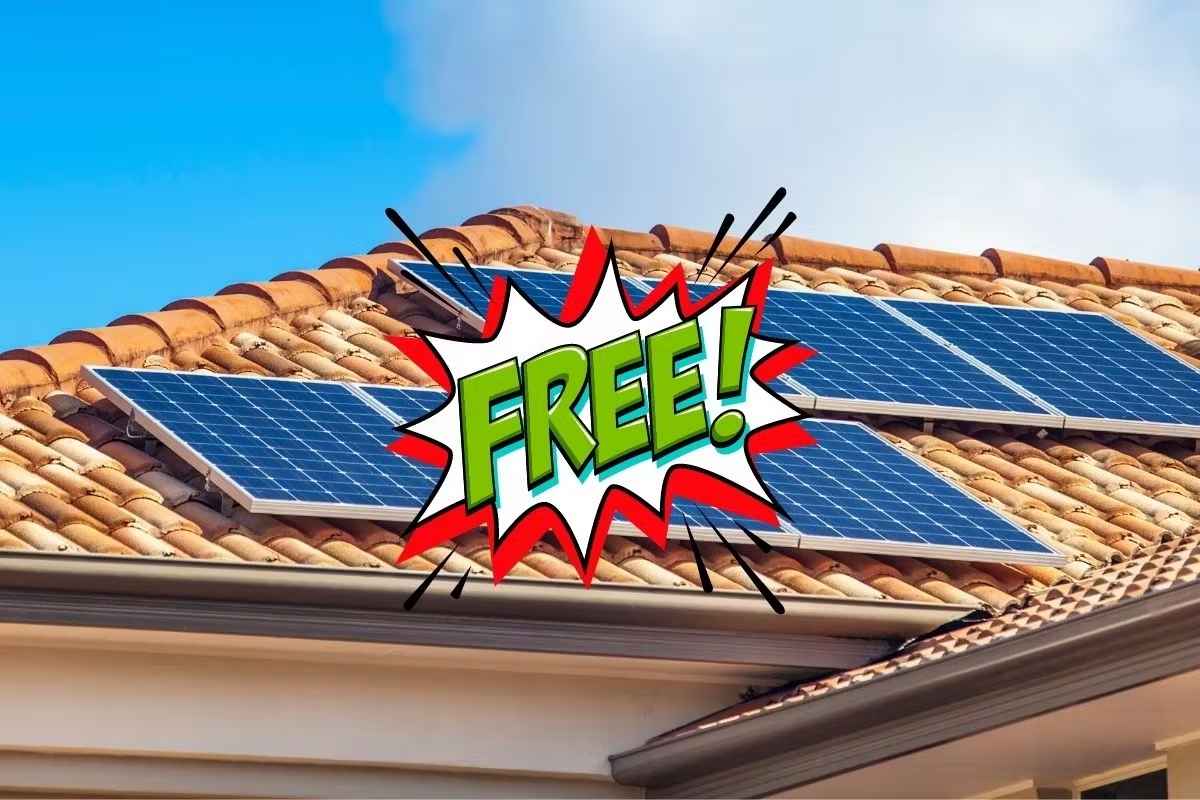The notion of “free solar panels” is more of a marketing gimmick than a reality. While the phrase may capture your attention, what’s often really being offered are solar lease or power purchase agreement (PPA) options, which come with their own sets of conditions and costs.
In these arrangements, a solar company installs the panels on your property with no upfront costs—hence the appeal of the term “free.”
However, it’s important to understand that you’re not owning the solar panels. Instead, you’re essentially renting them, or buying the electricity they produce, often through monthly payments.
While these deals might include free installation, free maintenance, and even guaranteed savings, it’s crucial to read the fine print. Often, the contracts for solar leases or PPAs have terms that may not align with your financial or energy needs in the long term.
If you’re interested in getting a solar panel system with $0 down, consider taking out a solar loan. Unlike leases or PPAs, solar loans enable you to own the system, benefit from any state and federal incentives, and potentially increase the resale value of your home.
So, before you’re tempted by the offer of “free solar panels,” make sure you understand what you’re signing up for. Consider all your financing options carefully, and weigh them against your long-term energy goals and financial situation.
Financing Options for Solar Panels
The allure of “free solar panels” can be strong, but as with many offers that seem too good to be true, there can be pitfalls. While solar leases and PPAs can provide benefits for some homeowners, they come with strings attached.
Here’s what to consider when deciding the best way to finance your solar installation:
Purchase Outright
This is often the most straightforward method. If you can afford the upfront costs, buying your solar system outright can lead to the highest return on investment. By owning your system, you benefit from federal and state tax incentives and potentially increase your property’s resale value.
You’re also free from monthly payments associated with leases or loans.
Solar Loans
If you can’t afford the initial outlay, solar-specific loans have become increasingly popular. These loans allow you to finance the total cost of the system, meaning you’ll have monthly payments.
However, the system belongs to you, so you reap the benefits of tax credits and any state or local incentives. Once the loan is paid off, you’ll own the system outright.
Solar PPAs & Leases
As mentioned, these can be beneficial for some homeowners, especially those who want to avoid maintenance responsibilities or upfront costs. However, it’s essential to read the fine print and understand the long-term implications.
Home Equity Loans or Lines of Credit
If you have equity in your home, you might consider using it to finance your solar installation. The interest rates for these types of loans can be lower than solar-specific loans, but remember that your home is the collateral.
Energy Efficient Mortgages (EEMs)
This is a federal program that allows homeowners to incorporate the cost of energy-efficient upgrades, like solar panels, into their mortgage.
Before making a decision, it’s crucial to weigh all these options against your financial situation and long-term plans. You want to consider things like:
- How long you intend to stay in your home
- The monthly costs and savings associated with each financing method
- Your ability to claim tax incentives
- Potential increase in property value
Lastly, always research the solar companies you’re considering. A reputable company will be transparent about costs, potential savings, and the pros and cons of different financing options.

